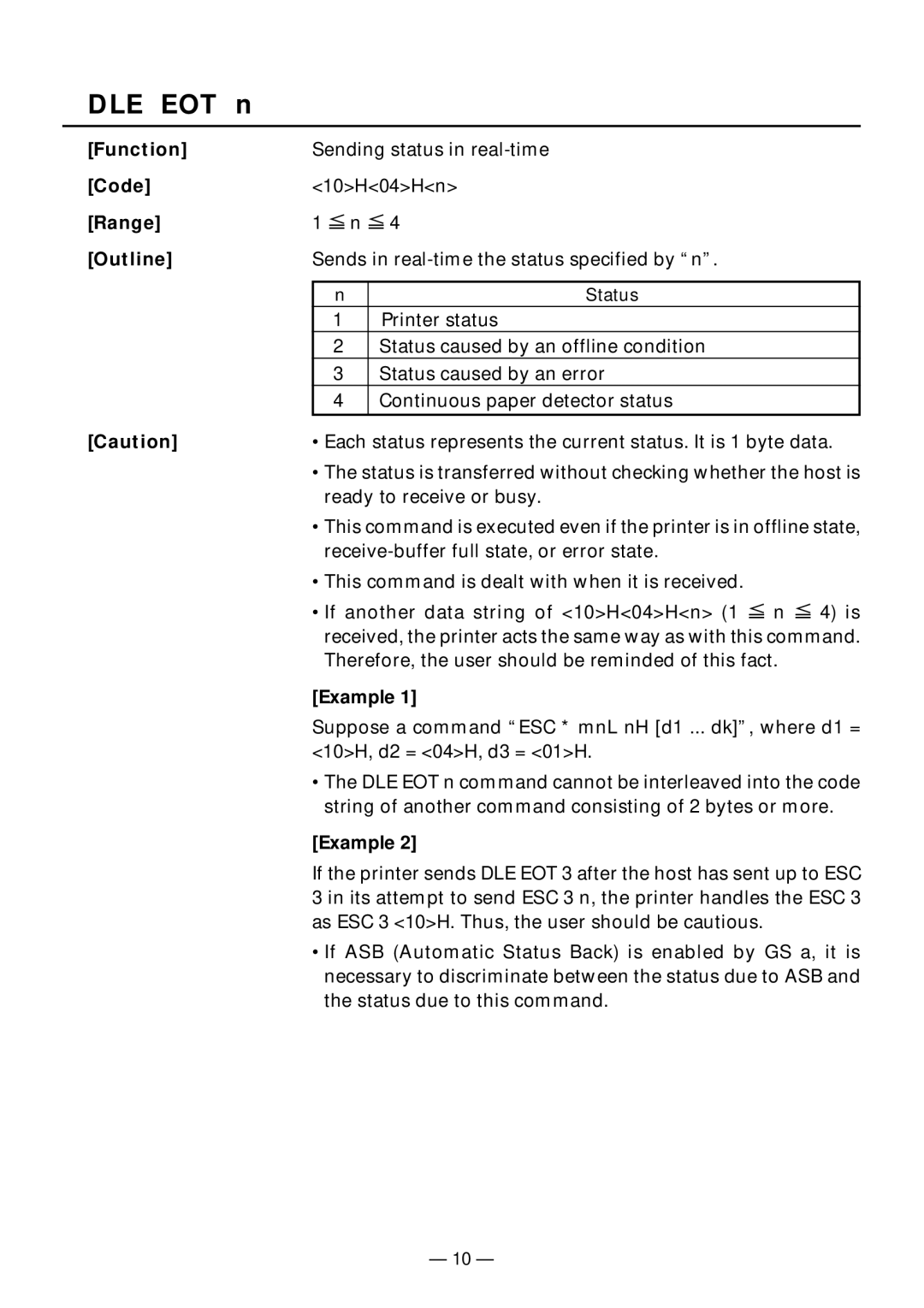
DLE EOT n
[Function] | Sending status in | |
[Code] | <10>H<04>H<n> | |
[Range] | 1 | n 4 |
[Outline] | Sends in | |
|
|
|
| n | Status |
1Printer status
2Status caused by an offline condition
3Status caused by an error
4Continuous paper detector status
[Caution] | • Each status represents the current status. It is 1 byte data. | |
| • The status is transferred without checking whether the host is | |
| ready to receive or busy. |
|
| • This command is executed even if the printer is in offline state, | |
|
| |
| • This command is dealt with when it is received. |
|
| • If another data string of <10>H<04>H<n> (1 n | 4) is |
| received, the printer acts the same way as with this command. | |
| Therefore, the user should be reminded of this fact. |
|
[Example 1]
Suppose a command “ESC * mnL nH [d1 ... dk]”, where d1 = <10>H, d2 = <04>H, d3 = <01>H.
•The DLE EOT n command cannot be interleaved into the code string of another command consisting of 2 bytes or more.
[Example 2]
If the printer sends DLE EOT 3 after the host has sent up to ESC 3 in its attempt to send ESC 3 n, the printer handles the ESC 3 as ESC 3 <10>H. Thus, the user should be cautious.
•If ASB (Automatic Status Back) is enabled by GS a, it is necessary to discriminate between the status due to ASB and the status due to this command.
— 10 —
